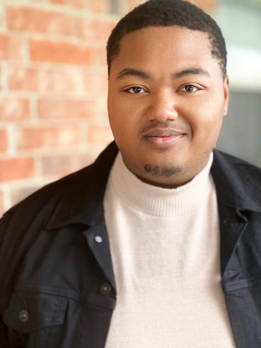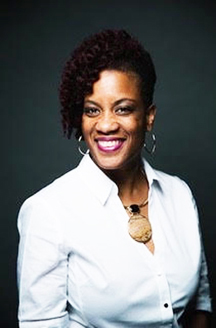
By Tricia Hall
Sojourner’s Truth Reporter
The Association for Ethnic Studies Conference sponsored a series hybrid panel discussions and in-person networking activities from November 4-6 on the campus of Bowling Green State University.
The two-day conference kicked off with a Welcome Reception at the Dorothy Uber Bryan Gallery. Attendees were able to attend a variety of panel discussion topics: Racism in America’s Founding, Policing of Racialized Communities, Latina X Activism and Pedagogy, Asian and Pacific Islander American Activism, African American Musical Traditions, Mapping Multi-cities a Scholar-Activities and Artists in Ohio, 21st Century Regional Ethnic Conflicts, Conversation with Editors of the Ethnic Studies Review, Feminist Discourses, Native Cultures and History, 25 Years of Latinx Voices at BGSU, Critical Approaches to Civil Rights and Equity, and Ethnic Studies Pedagogies.
A Friday afternoon panel discussion, “Masculinity and Racial Construction,” was moderated by Jeff Brown, PhD, and featured panelists Rob Barry from The Ohio State University and Thomas Edge from Bowling Green State University.
Barry presented research entitled, “One time, I took a swim in [De]nial: The Currents of Anti-Blackness and Reimagining Black Masculinities in the age of #BlackBoyJoy” and Edge presented research entitled, “The Original Black Panther: Regis Siki, Pro Wrestling, and the Framing of African Identities in the U.S.”
The discussion started by examining the notion of Black boy joy. The moderator drew connections between the theme and Beyonce’s last album and Chance the Rapper’s public response to a brief interaction with Beyonce.

“The question is what is joy in an anti-black world. The album questions how and why Black men survive post slavery and how Black male bodies are scripted as men even when they are boys like Emmitt Till and Tamir Rice. What happens when men reclaim boyhood? What happens when Black boy joy seeks to find answers?” explained Brown
Black boy joy became mainstream in 2016, when according to the moderator, a black male social media influencer searched for black boy joy virtually and zero results were founded. He then started a social media campaign asking followers to post pictures of Black men smiling while using the same hashtag #blackboyjoy.
“Black men having access to Black boy joy must be willing to reflect on experiences and heal. The world is critical of Black men who experience joy,” explained Dr. Brown.
A Saturday afternoon panel discussion, “Bringing Ethnic Studies to Ohio High Schools,” was moderated by Vibha Bhalla, PhD and featured panelists Ariana Sanders and Lucas George from Ohio. Sanders’ presented research entitled, “Why bring Ethnic Studies to the high school classroom and what importance will it have for our students?” and George’s research was entitled, “Developing an Ethnic Studies framework and modules to help teachers embed important content into their curriculum.” Attendees were also invited to view the draft version of education materials and provide feedback.
George explained that a committee was formed and charged with shaping educational materials for teachers, this committee isn’t affiliated with the Ohio Department of Education but is crafting these documents in a format familiar to teachers. George formed the committee following the death of George Floyd. “I realized what I was doing wasn’t enough as an Ohio Social Studies teacher,” explained George.

Once the content is finalized it will be accessible to teachers virtually in Thematic and Chronological recommendations standards. The committee is working on the following education modules standards list about race and ethnicity: African Americans, Asian Americans, Hispanics and Latino Americans, American Indians; standards about gender identify and history: sexual orientation, gender identity, and women’s history and future standards; Arab Americans, Americans with disabilities and world religions.
“The committee is comprised of Ohio educators focusing on inclusive language and intersectionality framework seeking to connect competency with diverse identities,” explained George.
In addition to workshops, Friday’s luncheon featured a welcome address from Julia Jordan-Zachery, the Ethnic Studies president and Saturday’s luncheon featured Baldemar Velasquez, the founder of the Farm Labor Organizing Committee (FLOC).
Several students, professors and staff from BGSU participated as topic experts including: Justin Mulls, Timothy Messer-Kruse, William Daniels, Mohammad Rahman, Marlena Graves, Stevie Scheurich, John King, Jacqueline Hudson, PhD, Steven Stendebach, Susana Pena, Luis Moreno, and Mark Sprang.
Individuals from other institutions of higher learning also contributed to this conference including: Albion College, Charles University, California State University San Marcos, St. Francis College, Millersville University of Pennsylvania, Michigan State University, Newcastle University of the United Kingdom, North West University of South Africa, Northern Arizona University, Oregon State University, Temple University, University of Chittagong, University from Tennessee at Chattanooga, University of California San Diego, University of Arizona, University of California Berkeley, University of Texas, University of Dayton, Virginia Commonwealth University, Yale University;
According to the conference website, AES was formed in the early 1970s with a small group of Midwest scholars and by 1972 the group identified a need to form an association. The association would bring together those interested in interdisciplinary approach. The association’s first conference was held in 1973 in Wisconsin.
